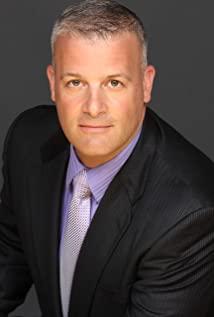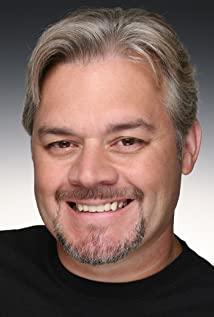Since ancient times, people have been willing to bow down to the knees of the gods and become the most devout believers.
When the difficulties were solved, the words that blurted out were "Thank goodness"! In the face of suffering helpless, most of the prayers in my heart are "God bless"!
The reason why human beings are willing to prostrate themselves at the feet of God is because God is omnipotent.
Although the power of the gods is terrifyingly powerful, there is a power in ancient Greek legends that makes the gods on Mount Olympus panic.
With four eyes, two noses, two mouths, and everything is double, the ball man has the power to surpass the gods, and this power makes the gods uneasy. So, in the end, the gods, on behalf of Apollo, split the ball into two with lightning and sutured their wounds.
Incomplete balls spend their whole lives looking for their other half, so the love combinations in the world are not all opposites attract.
Therefore, Professor Chen Guo from the Department of Philosophy of Fudan also said in the class, if you still think that the combination of the opposite sex is the only one, that would be too out!
Yes, when the incomplete we have worked so hard to find the other half, the only thing we have to do is to hug the half tightly and restore ourselves to the state of a ball man.
Because, when you become a ball man, you are as powerful as the gods.
When I saw the film "The Normal Heart", directed by Ryan Murphy and based on Larry Kramer's own experience, I thought of the ancient Greek legend of the ball man.
"The Normal Heart" was released in the United States on May 25, 2014. It tells the story of the New York gay community in the early 1980s, after suffering from AIDS, began to fight against fate and never give up on true love.
The film seems to be about AIDS all the time, but I think the film is not just about how AIDS came about, why it broke out in the gay community, why the death rate is so high.
What the film wants to express is not just a pathological exploration. He wants to explore the living environment of homosexuals through their struggle against AIDS, and strive for equal treatment of homosexuals in society.
As a witness to the AIDS storm in the 1980s, Larry Kramer used himself as a prototype to integrate the living conditions of that group and his own understanding of it into the script, showing the difficulties this group encountered in the fight against AIDS and toughness. Of course, "to love", "to pursue love", "to pursue equality", these innate rights for all people to be born equal are also what the film wants to convey.
At the beginning of the film, it was a brisk and happy beach party. People on the beach enjoyed the carnival to the fullest. Suddenly, a young man named Craig fell to the ground because of his abnormal body. He was the first of the group to show obvious symptoms, but at the time no one noticed what the anomaly represented. The first newspaper report that "41 gay men suffer from rare cancer" caught Ned's attention. At this point, the cheerful and clear picture ends.
Ned met Emma's 20th volunteer, Sanford, in hospital and witnessed the death of Bruce's partner. As a "big mouth" in the gay circle, he was outspoken and dared to say that this was exactly the "leader" Emma needed.
Watching his friends die and the government's inaction, Ned and his friends set up a self-help organization. They appealed to the government and society to pay attention to this upcoming plague through fundraising and various methods. They are running around, defending each other and arguing, each with their own opinions and concerns.
Death, panic, depression, and anger permeate everyone in the circle. They yearn for attention and rescue, but they are afraid that the exposure of their identities will make them lose their jobs, respect, friends, and even equality.
Radical Ned is like an angry beast, he speaks out for his circle in his brutal and extreme ways, but because of his radical approach, he is eventually removed from the organization he founded.
His career failed to take off.
But during this movement, Ned met and fell in love with Felix, a reporter for the New York Times at the time.
Unfortunately, Felix was also diagnosed.
For the people he loves, Ned endures grief and takes care of him tenderly. But luck never favored anyone, and Felix left Ned in the end.
At that time, AIDS had been spreading in the United States for four years.
At the end of the film is a warm and romantic scene, where couples of lovers are embracing and dancing, the surrounding lights are soft and warm, and the music is soothing and romantic. Ned is in it, smiling at the camera with tears in his eyes.
The overall picture of the film is relatively dimly lit, showing a depressing and desolate atmosphere, like the feeling of death and panic shrouded in the gay circle.
People are always easy to take the unknown lightly, and it is easy to believe what they want to believe.
Like, when Emma, a paramedic, called on them to stop promiscuity, someone said, "I'll come back when this wheelchair bitch goes out"; when Ned managed to get on board with the presidential aide in order to make the government take AIDS seriously When he spoke, what he cared about was not how the group of people was, but asked "whether there is a risk of infection when recruiting prostitutes."
When the danger is just approaching, the person with a keen sense of smell and caution often becomes the "rumor maker" in the mouths of the people; and when the danger sounds and spreads, the "rumor maker" is pushed to the altar again and becomes a hero; When the danger was stable, the "rumour maker" who had just become a hero was martyred.
The familiarity of the trajectory is staggering.
This can't help but remind me of Dr. Li Wenliang, the whistleblower of the new crown epidemic. Like Emma, he maintained the vigilance of a medical staff, but at that time he became a "rumor maker" who lacked the support of data theory; after the outbreak of the new crown epidemic , he was put on the altar again and became the whistleblower of the new crown epidemic; but in the end, when everything was slowly getting better and the epidemic was gradually under control, the whistleblower fell into the epidemic.
If people were more in awe of life and more alert to all possibilities, whether it was the AIDS outbreak in the film or the outbreak of the new crown epidemic in reality, it might not end there.
Yes, the fact has already happened.
How to more effectively stabilize control, how to gain time to live when not getting enough medical treatment?
Spiritual comfort and support is particularly important. A person can fight against death because of the love of life and because of being in love.
In the film, Ned and Felix have the power that makes the gods on Mount Olympus uneasy - love.
At first Ned coveted the male god Bruce, although he later met Felix, but at first he may not be sure that Felix is the true love he has been looking for in his life. Until the words Ned said when hugging Bruce in the bathroom. I think it was at that moment that he saw his heart and confirmed that Felix was his true love.
Because I have confirmed the love in my heart, I can withstand the hints and temptations of those who once yearned for it; because I have confirmed the love in my heart, I have fulfilled my unswerving belief; because I have confirmed the love in my heart, I can live in a huge way after Felix's diagnosis. She is gentle under the pressure of her, and can confess her heartfelt love when she says goodbye to her lover in front of the hospital bed.
Love embodies inhuman power, which is beyond divine power. Because this kind of power threatens the divine position, there is a legend that Apollo divided the ball into two from the middle.
Therefore, they spend their whole lives looking for their other half, and when he finds his other half, he should dedicate his heart and soul to his other half, and hug him tightly.
Before meeting Felix, Ned was lonely and belonged to each other, but after meeting Felix, they fulfilled each other's integrity and achieved a common consummation.
The film received the nomination after its release, and it also became a popular choice for the Emmy Awards that year. The film reflects the complex environment in which the gay community lived at the time, and the lack of vigilance in the face of unknown diseases, while also profoundly illustrating the power of love.
What touched me about the movie is that some people are willing to be whistleblowers in the unknown, and some people are willing to die in the face of love. Everyone has their own last resort and do their best, and everyone is gradually facing themselves and death with a normal mind.
Facing the fear of death, unloved is even more frightening. Facing the separation of love, it is regrettable not to have true love.
When two imperfect people meet, they can create perfection. This two-in-one encounter inspires an existence comparable to divine power. Later, the only thing to do is to return to the state of the ball.
text |
Edit | Shortbread Cat
View more about The Normal Heart reviews











